travellinglight/iStock/GettyImages
Sturdy root vegetables store for a long time in dry storage, but cubing them and freezing them takes care of some of the work ahead of time so you can spend less time in the kitchen later. Not all root vegetables freeze well, but many can withstand freezing with minimal texture or flavor loss if you properly prepare them.
Selecting Vegetables
Carrots, beets and parsnips freeze well and only soften slightly during the freezing and thawing process. Onions freeze poorly but it's possible to freeze diced onions for a short period if you only use them in cooked dishes. Cubed potatoes are prone to discoloration during freezing, or they may develop a mealy texture. They are best suited to frying after freezing, so they are typically only frozen cubed for use as hash browns.
Preparation
Most root vegetables require blanching before you freeze them, especially if you cut them into cubes. Blanching briefly cooks the vegetable so it is less prone to discoloration and texture changes during storage. Cubed carrots, parsnips, potatoes and other starchy root vegetables require blanching for two to three minutes in boiling water. Blanch beets whole for up to 30 minutes, or until the skins slip off, then cut them into cubes. Onions also respond best to whole bulb blanching for for about three minutes, then you can dice the bulb. After blanching, submerge the vegetables in ice water so they cool quickly.
Packaging
Packaging methods depend on your preferred usage. Spreading the blanched cubes on a baking sheet and freezing them before packaging prevents the vegetables from clumping together, so you remove just what you need from the freezer. If you freeze the vegetables in this way, store them in a freezer-quality storage bag. Alternatively, you can pack single servings of vegetables into plastic bags or storage containers. Always mark the date on the package.
Use
Frozen root vegetables don't typically require thawing before you prepare them. Vegetables prone to discoloration, such as potatoes, are more likely to brown if you thaw them first, so only cook them from frozen. Add them to soups and stews, mix them into casseroles, boil them or fry them. Frozen vegetables usually cook as quickly as their fresh counterparts because the blanching process softened them slightly before they were frozen.
Related Articles

How to Freeze Carrots & Turnips
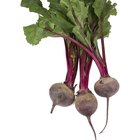
How to Freeze Fresh Beets

How Do I Freeze Homemade Hash Browns?
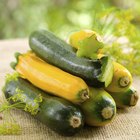
How to Freeze Raw Zucchini
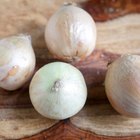
How to Freeze Onions for Future Use
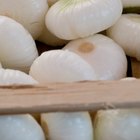
How to Blanch Onions

Blanching An Onion
How to Boil Potatoes So They Can Be ...

How to Freeze Cooked Carrots
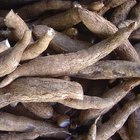
How to Cook Yucca Root

How to Cook Jerusalem Artichokes
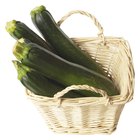
Can I Freeze Large Zucchini and Summer ...

How to Freeze Fresh Asparagus
Can You Freeze Shish Kabobs?

How to Freeze Chunks of Butternut Squash

How to Preserve Rutabagas
How to Preserve Kohlrabi
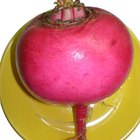
How to Roast Turnips

Do Frozen Potatoes Cook Well Once ...

How to Roast Beets for Canning or ...
References
Writer Bio
Jenny Harrington has been a freelance writer since 2006. Her published articles have appeared in various print and online publications. Previously, she owned her own business, selling handmade items online, wholesale and at crafts fairs. Harrington's specialties include small business information, crafting, decorating and gardening.